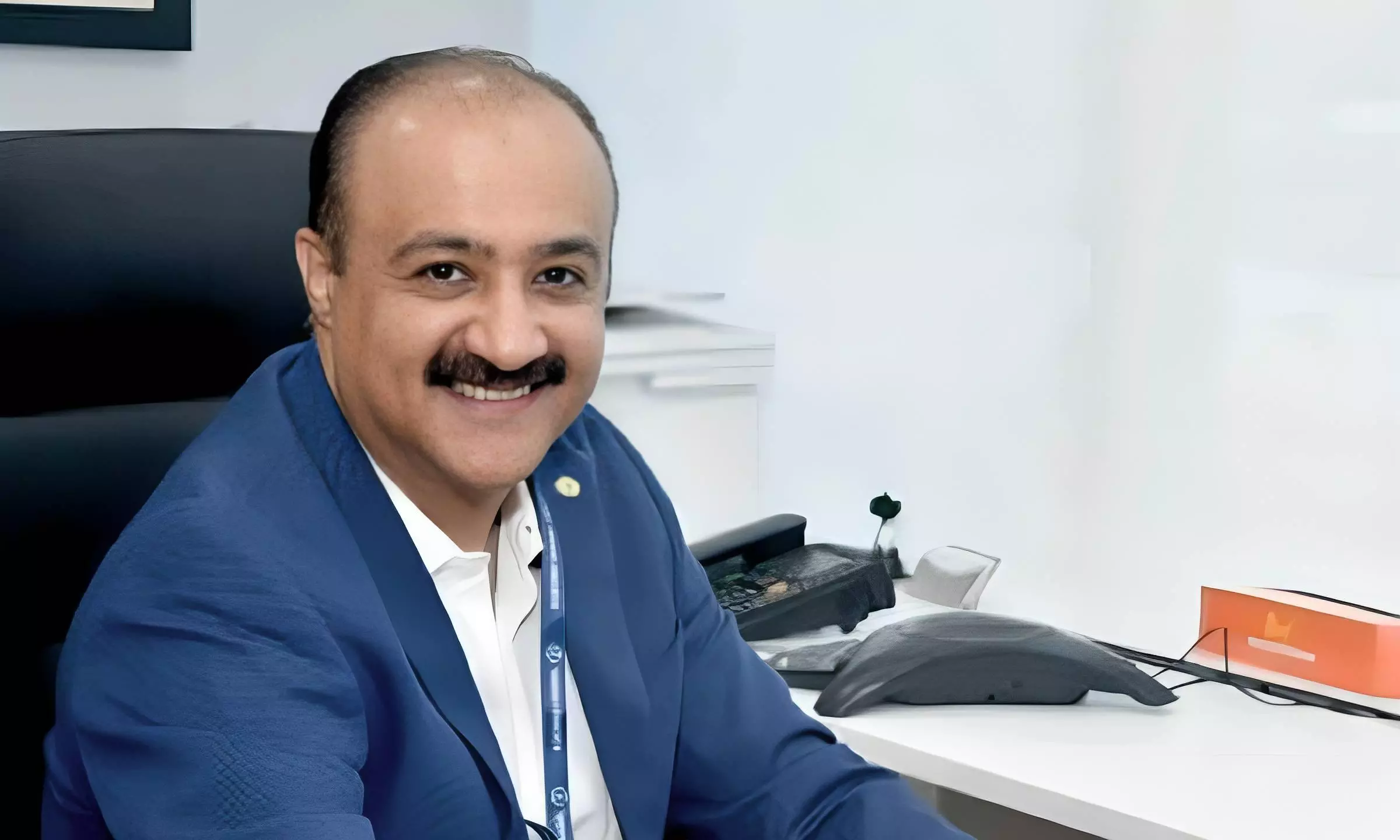Automation, AI, sustainability: KN’s take on Indian shipping's future
An interview with Satyam Magon, Cluster Head Sea Logistics – Kuehne+Nagel India, Sri Lanka, and the Maldives.

Satyam Magon, Cluster Head Sea Logistics – Kuehne+Nagel India, Sri Lanka, and the Maldives
From AI-powered shipment planning to IoT-enabled containers and carbon calculators are reshaping sea logistics in India. In this conversation with India Transport & Logistics News, Satyam Magon, Cluster Head Sea Logistics – Kuehne+Nagel India, Sri Lanka, and the Maldives, discusses how technology, automation, and sustainability are driving the company’s operations and setting new benchmarks for the industry.
How much has technology evolved over the years for Kuehne+Nagel container operations in India?
Over the past decade, Kuehne+Nagel India has been leveraging digital solutions by replacing many manual processes with integrated digital platforms, greatly enhancing container operations. For example, our myKN digital portal consolidates freight quotes, online booking, and real-time tracking into a single interface. Customers can instantly obtain competitive rates, convert them to bookings, and monitor shipments end-to-end (origin to destination) on any device.
Our seaexplorer tool is well-regarded by our customers in India, providing them with timely updates on shipping industry developments, including disruptions such as port congestion and vessel berthing delays. This enables them to make informed decisions to support their supply chains.
How is Kuehne+Nagel approaching technology now - IoT, AI, GenAI - to ease operations?
We have automated quite a lot of our processes and use AI to support us with repetitive tasks so that employees have more time to face customers and support them in their supply chain. Many routine tasks (documentation, invoicing, shipment planning) are managed by intelligent systems rather than manual entry.
For example, the company applies machine learning and AI for pattern recognition and predictive maintenance, freeing staff for customer-facing roles. Smart algorithms analyse large datasets to optimise routing and scheduling, reducing delays and costs. The use of IoT sensors on containers is another key innovation: temperature, humidity and GPS sensors transmit real-time condition data during transit, ensuring quality control and full traceability. These connected devices help prevent the spoilage of sensitive goods (e.g. pharma) and alert planners to any irregularity in the process.
- Automated workflows: Most back-office processes (quotes, booking confirmations, invoicing) run on integrated IT systems, reducing paperwork. AI tools now handle routine exceptions, leaving employees free to manage exceptions and support customers.
- Predictive analytics: Kuehne+Nagel leverages big data to forecast transit times, vessel ETA, and demand patterns. Advanced analytics flag potential risks (e.g. port congestion) so planners can reroute proactively.
- Generative AI initiatives: The company is piloting generative-AI solutions (e.g. smart data-cleaning of master records) to further streamline data processing, reflecting a broader push into next-generation AI tools.
Today, the results are more transparent, an efficient supply chain with fewer errors and faster response times
A case study where tech really solved key challenges in India.
A strong example of technology addressing India’s logistics challenges is the Port Community System (PCS 1x), launched in December 2018.
This unified cloud-based platform connects 13 major ports, terminals, railways, and customs, replacing paper-based processes with real-time, standardised digital communication via APIs and EDIFACT/XML. PCS 1x has significantly reduced vessel turnaround times and improved cargo visibility by enabling instant updates on manifests, berth assignments, and customs clearances.
With widespread adoption of stakeholders, including private ports and freight stations, the system has become a single source of truth for all supply chain participants. Tools such as myKN and seaexplorer complement PCS 1x by enabling customers to monitor shipments, manage disruptions, and track emissions across connected ports—delivering added value, particularly to sectors like automotive and pharmaceuticals, through greater transparency, planning, and efficiency.
How is Kuehne+Nagel addressing sustainability challenges using technology?
Sustainability is a top priority. Kuehne+Nagel leverages digital tools to support environmental goals. Its Global Sea Logistics Carbon Calculator and seaexplorer platform provide full visibility of CO₂ emissions for each shipment, helping customers choose lower-emission routes and carriers. Powered by predictive analytics and AI, these tools support smarter, more sustainable decisions across the supply chain. They help optimise load factors, suggest fuel-efficient routes, and ultimately contribute to lower emissions and improved operational efficiency. Through myKN, customers can make informed, sustainable choices to support their decarbonization goals.



